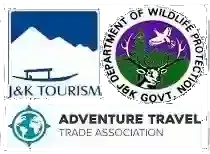Wildlife is traditionally defined as the uncultivated or undomesticated animals. In a broader view it refers to all the uncultivated/ undomesticated plants, animals and microorganisms. Wildlife is a living resource that is replaced by successors after death of predecessors.
Wildlife plays an important role in balancing the environment and maintains the ecological balance. It also provides stability to different natural processes. It can be found in all ecosystems like deserts, rainforests, plains and other areas.
Wildlife has a very vital role to play in sustaining, balancing and maintaining ecological balance of nature and stabilizes food chain. It provides various substances and other commodities which are beneficial to man mankind. It provides us leather, ivory, honey, tusk, food and many more. Besides these it provides medicine to drug industry which is used to cure and treat hundred of diseases. It is also regarded as the country’s asset. It also generates lots of money by putting some animals in the exhibition. It also provides aesthetic value to man. Hence we have a large dependence on the wildlife in terms of different requirements.
Wildlife has been greatly diminished and affected badly from past few decades all over the globe. This is due to the human intervention, whether that may be due to industrialization, population extension and over exploitation of different resources to become supreme. Many animal and plant species have been declared now as extinct species due to their over exploitation and various other organisms are close to this border of extinction.
Wildlife needs to be protected and conserved and used in a better way so that neither wildlife is affected and nor man faces repurcussion. People sometimes living near forest drive almost everything from wild and consider it as sacred, as a result conservation is done.
Indian lion population has diminished greatly due to excessive poaching and loss of breeding grounds. Many other keystone species became extinct as a result ecological imbalance. Hangul (Kashmiri stag) Kashmir’s state animal was found all over Kashmir a century before but now has been restricted only to Dachigam National Park and has been declared as an endangered animal. This status is due to extensive poaching and loss of breeding grounds. Deserts are considered that they were sometimes grasslands and due to overgrazing they turned into deserts.
This whole scenario of deteriorating the earth specifically wildlife has been directed and propagated by man.
Wildlife is an important and precious asset and gift of nature that must be protected and conserved. Ethics does not allow a man to kill a living or to destroy his home. Due to the irrational use of natural and biotic resources of earth in the past, most of the wildlife has been destroyed beyond retrieval. It is our urgent duty to protect the natural splendor of ecosystems and to evolve a system of coexistence with every living being on the earth. Over-exploitation, habitat encroachment, hunting and poaching must be limited so that w do not face loss of precious entities of nature.
The normal functioning of the biosphere depends on the endless interaction among animals, plants and microorganisms. Wildlife should “thrive” so that we can “survive”. A famous Kashmiri saint (Shaikh ul Alam) has said,
Ann Poshi Teli Yeli Wann Poshi (meaning – Food lasts as long as forests last).



